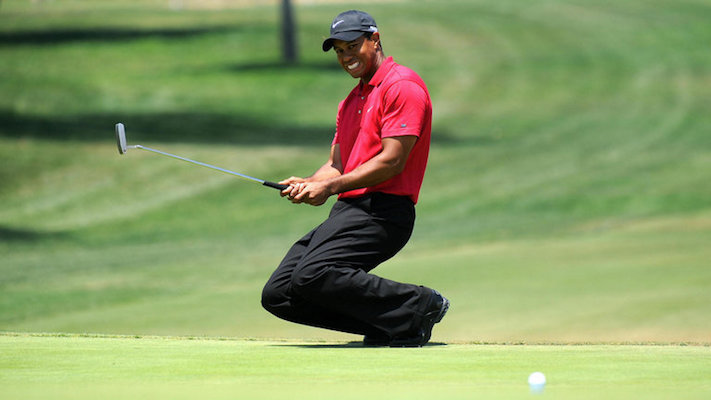For now, Tiger Woods’ returning to a PGA Tour event isn’t important, let alone winning again, writes GARY LEMKE in Compleat Golfer.
It’s the image that continues to haunt the sporting world: Tiger Woods staring blankly at the camera as he poses for his police mugshot after being arrested in the early hours of 29 May.
What followed was a humiliating sequence of images deliberately being released after he was found asleep at the wheel of his stationary car at the side of the highway near his Florida home.
The whole world tuned into the dashcam footage of Woods being interviewed by police, incoherent and disorientated, unable to follow basic instructions or perform routine sobriety tests. And later, stumbling around a jail cell.
How the media lapped up the discovery. ‘The DUI of the Tiger’, roared the New York Post in a headline that received glowing tributes on social media forums. Never mind the fact the genius who wrote the headline had got it wrong. Woods had been breathalysed twice and recorded 0.00 in both instances for alcohol.
In subsequent weeks we discovered that Woods had booked himself into a rehabilitation clinic, desperate to avoid losing joint custody of his two children. The golfer who inspired a generation had overdosed on prescription drugs, reportedly to cope with pain after several back surgeries.
Woods’ career as we knew it, has long been over. He hasn’t added to his 14 Major titles since 2008 when he won his third US Open at the age of 32. Then, it was assumed he would skate past Jack Nicklaus’ 18 Majors and become the greatest of all time.
There is a strong argument that says that even though he didn’t, golf has never seen a player as good as he was.
Yet Woods has never lived a normal life and it’s against this backdrop that he is finding it difficult coping as a 41-year-old in a ‘normal world’. His life has been lived in a bubble, like Jim Carrey in The Truman Show.
At the age of two he was on The Mike Douglas Show, and at three he shot 48 over nine holes. There was no normal childhood.
His swing was so powerful, almost violent, that when he won his first Major, the 1997 Masters, it was as if we were watching an extraterrestrial. Everywhere he went, he trampled over barriers and stereotypes, and his presence helped make millionaires of professionals who climbed on to the cash bandwagon that Woods had created via the TV channels and sponsors.
Yet, Woods has an addictive personality. Winning was an addiction. So too was sex, and now drugs have been added to that list.
We discovered his sex addiction late in 2009 after the public meltdown of his marriage, and now he’s admitted to an addiction to prescription drugs. It’s no exaggeration to say that if it isn’t controlled, the addiction could kill him.
However, golf is a big brotherhood. His peers know what he did for the game and his role in helping to enrich them. For now, him returning to a PGA Tour event isn’t important, let alone winning again. It’s simply a matter of him getting back on his feet, in every sense, and moving forward. Let’s hope he gets the space, privacy and time to do that.
– This column first appeared in the July issue of Compleat Golfer, now on sale!








